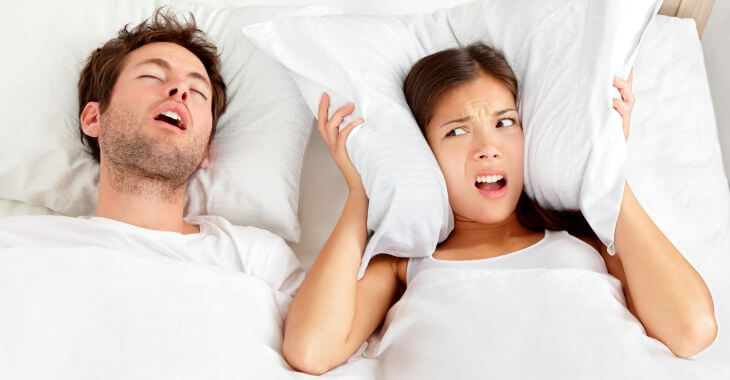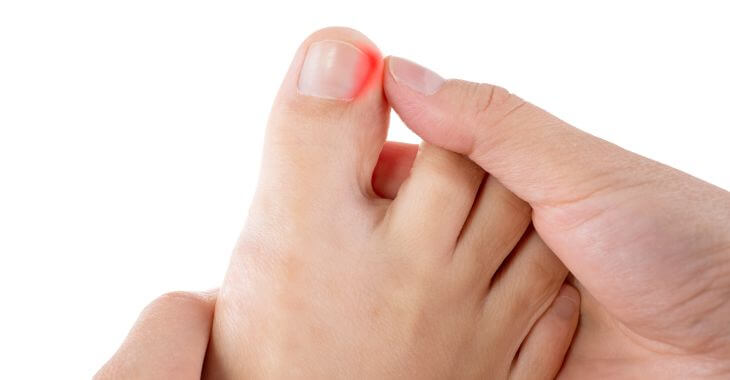Why Do I Wake Up With a Headache and Dry Mouth?

Waking up with a headache and dry mouth can be both uncomfortable and concerning. While these symptoms might feel minor at first, they can be your body’s way of signaling deeper health or lifestyle issues. Knowing the possible causes can help you take action for better mornings.
If you are wondering, “Why do I wake up with a headache and dry mouth?”, here are 13 possible reasons you may be waking up with dry mouth.
1. Dehydration Overnight
One of the simplest explanations for waking up with a headache and dry mouth is dehydration. Your body loses fluids through breathing, sweating, and normal metabolism while you sleep. If you go to bed without enough hydration, you may wake up feeling parched and with a headache.
2. Mouth Breathing While Sleeping
Mouth breathing reduces saliva production, leading to oral dryness and discomfort in the morning. It can also irritate the throat and strain jaw muscles, which may cause headaches. Often, mouth breathing is linked to nasal congestion, allergies, or structural nasal issues.
3. Sleep Apnea and Oxygen Levels
Obstructive sleep apnea causes repeated pauses in breathing during the night, reducing oxygen in your bloodstream. Low oxygen levels can trigger morning headaches. Because apnea often forces mouth breathing, it’s a common reason for waking up with dry mouth too.
4. Teeth Grinding (Bruxism)
Grinding or clenching your teeth while you sleep creates tension in your jaw, neck, and head. This tension can cause headaches upon waking. Bruxism also irritates oral tissues, making a dry mouth more likely. Stress is a common factor behind nighttime grinding.
5. Medications That Reduce Saliva
Some prescriptions and over-the-counter drugs can decrease saliva flow, leading to morning dryness. Antihistamines, certain antidepressants, and some blood pressure medications are known culprits. Reduced saliva increases the likelihood of waking up with dry mouth and discomfort.
6. Alcohol or Caffeine Before Bed
Alcohol can dehydrate your body and relax throat muscles, increasing snoring and mouth breathing. Caffeine, meanwhile, may disrupt sleep cycles and reduce rest quality. Both can leave you waking up with dry mouth and a headache the following morning.
7. Allergies and Sinus Issues
Seasonal allergies, dust, or sinus infections can block nasal passages, making nose breathing difficult. The resulting mouth breathing dries oral tissues and can trigger headaches from sinus pressure. Addressing the allergy or congestion often brings relief.
8. Poor Sleep Quality or Sleep Position
Awkward sleeping positions can strain neck and shoulder muscles, causing tension headaches. Low-quality sleep, from frequent waking or restlessness, can reduce saliva production overnight. The result may be both muscle-related pain and dry mouth upon waking.
9. Diabetes and Blood Sugar Fluctuations
Diabetes can contribute to morning dryness and headaches through dehydration caused by frequent urination. Blood sugar highs and lows overnight can also cause vascular changes and pain. For those with diabetes, these symptoms may warrant closer blood sugar monitoring.
10. Chronic Stress and Jaw Tension
Stress can trigger unconscious habits like jaw clenching or shallow breathing during sleep. These habits tighten muscles and irritate oral tissues, causing both headaches and dryness. Relaxation techniques before bed may reduce the risk of waking up with dry mouth.
11. Climatic and Environmental Factors
Dry indoor air, especially from air conditioning or heating systems, can reduce moisture levels in your mouth and nasal passages. A bedroom with low humidity can worsen this effect. Using a humidifier can help you maintain a healthier sleep environment.
12. Dental or Bite Problems
Misaligned teeth or bite issues can stress your jaw joint, leading to headaches. These problems can also force you to adjust your jaw position during sleep, sometimes causing mouth breathing and dryness. A dental evaluation can rule out these causes.
13. Nutritional Deficiencies
Deficiencies in vitamins like B12 or minerals like magnesium may contribute to headaches. Low hydration combined with poor nutrition can also affect saliva production. Balanced nutrition supports overall oral health and reduces the risk of morning discomfort.
Tips for Relief and Prevention
To prevent these symptoms, drink enough water throughout the day, avoid alcohol and caffeine in the evening, treat nasal congestion, and consider a nightguard for bruxism. Use a humidifier to keep the air moist and follow a consistent sleep schedule.
When to See a Doctor
If you notice waking up with dry mouth and headaches regularly, seek professional advice. Persistent symptoms could signal conditions like sleep apnea, medication side effects, or chronic sinus issues that require treatment to prevent complications and to provide relief.
Are You Waking Up With Dry Mouth?
Why do I wake up with a headache and dry mouth? Morning headaches and dry mouth aren’t just inconveniences—they can be warning signs of underlying issues.

Whether it’s dehydration, sleep apnea, or dental problems, finding and addressing the root cause will help you wake up feeling refreshed and healthy. When changing your routine does not help, seek medical advice to get to the source of the problem.
The information provided on this website, including text, graphics, images, and other materials, is intended solely for informational purposes and should not be used as a substitute for professional medical advice, diagnosis, or treatment.




)